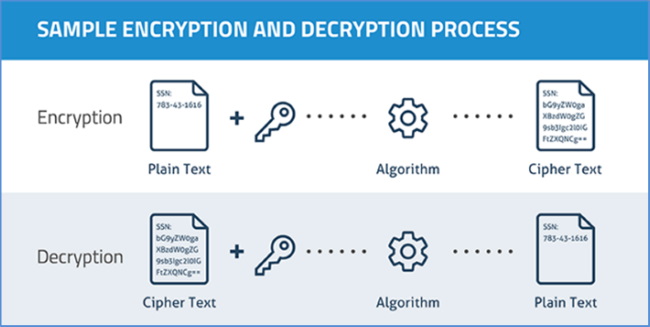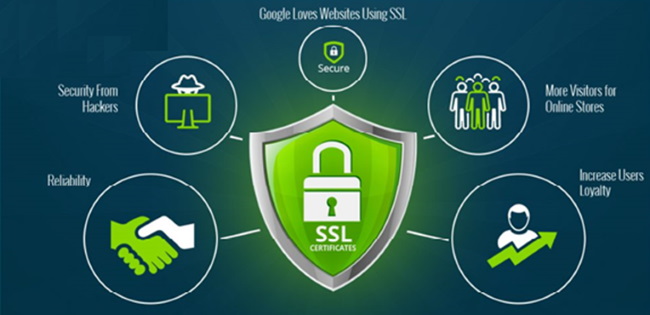There are many small site owners who don’t want to invest in SSL security because of their limited budgets.
They save money by not investing in SSL security, only to spend it on the damages caused by fraudsters.
Hence there are many Certificate Authorities who issue Free SSL Certificate who work on non-profit basis, to make internet a safer place. Freesslcertificate.org is one such provider who offers SSL for free.

What is an SSL?
In this digital world, where there are many prying eyes waiting to grab your personal data for satisfying their malicious intentions, SSL security is a boon in disguise.
SSL is an abbreviation of Secure Sockets Layer.
Their main function is to encrypt all sensitive information communicated between browsers and servers by using cryptographic algorithms; and hence this security protocol is also called cryptographic protocol.
Encryption in simple terms is the process of passing a coded message to the authorised person. Any unauthorised person cannot reach or read or decode the message.
This cryptographic method stops unauthorised interferences and protects sensitive information by transforming them into non-readable cipher text.
An example of encryption and decryption process is given below:

When SSL certificate is installed on a website, it shows two types of trust symbols.
1. HTTPS (Hyper Text Transfer Protocol Secure) instead of HTTP in the address bar
2. A green padlock in the URL
- Without SSL= http://example.com
With SSL = https://example.com
Customer’s check these trust symbols and are assured that the site is safe for making online financial transactions which in turn improves conversion rates. After Google made SSL security compulsory for all, SSL certificate helps boost SEO rankings too.
How does an SSL certificate work?
SSL certificates work like envelope seals who keep information safe within themselves.
The whole process of SSL certificates includes SSL handshakes, private key, public key, session key, encryption and decryption. It contains simple four step process.
- The first and foremost thing that a browser first checks when a user visits a website, whether the website has SSL security or not. If the website has SSL certificate installed than the process of SSL handshake starts.
- In SSL handshake, after the browser has checked the authenticity of the SSL certificate, the server creates public and private keys to handle encryption and decryption for secure communication.
- After the client checks the authenticity of the SSL certificate, the server and the client create a third key called the “session key” to secure communication.
- A secured connection is now created between client and server and they can communicate safely without unauthorised interferences.
Types of SSL Certificates
Different types of SSL certificates of different brands are available in the market. Many certificate providers sell these certificates at discounted rates for customer data security. Different certificates have different features and provide different securities to your website. Few of the types of SSL certificates are:
- Single Domain SSL certificate – This SSL certificate secures one main domain or one sub-domain of your website. It is the best for individuals having a single site and small businesses.
- Wildcard SSL Certificate – Unlike Single Domain SSL certificate, this SSL certificate secures one domain and unlimited sub-domains. It is the best for medium and large businesses.
- Multi-Domain/SAN SSL Certificate (MDC) – This SSL certificate secures multiple domains on multiple servers and unlimited sub-domains. It is the best for large corporate houses and large MNCs.
- Unified Communications Certificate (UCC) – UCC certificate is ideal for MS exchange server and its services. When you have multiple SAN fields, you can go with UCC certificate. For example, www.mysite.com, blog.mysite.com, mail.mysite.com, autodiscover.mysite.com
- Free SSL certificate – This SSL certificate mainly provides basic encryption security and comes with only Domain Validation (DV). Though their encryption level is the same as paid SSL certificates, they don’t provide any customer support help or warranty like paid SSL certificates. Even their issuance validity period is between 1 to 3 months whereas paid SSL can be issued for 1-2 years.
Mostly all SSL certificates are issued and signed by Certificate Authority, but some free SSL certificates are also Self Signed Certificates; wherein the user can sign the SSL certificate themselves and issue the same for their website.
Validation levels of SSL certificates
Different brands have different types of SSL certificates which come in different validations like Domain Validation (DV SSL), Organisation Validation (OV SSL) and Extended Validation (EV SSL).
- Domain Validation SSL – It provides the basic level of validation with 256-bit encryption at the lowest price. It secures the main domain or one sub-domain of your website. DV SSL can be issued in a few minutes and are compatible with most of the browsers. They give robust encryption and are ideal for individual websites and small businesses with low budget costs.
- Organisation Validation SSL – As name suggests, OV SSL verifies the name and entity of the organisation and the company’s name is shown in the SSL certificate. This helps gain customer trust for company as well as website. Their strong encryption security is the best for medium businesses, governments and e-commerce industries that need to protect sensitive data against cyber-criminals.
- Extended Validation SSL – Though EV SSL is costly and takes more issuance time (1-3 days) than the previous two validations, it is worth the money because of its ample advantages. All the legal documents of the company are verified before issuance of EV SSL and hence it is said to be the highest form of security. A website having this premium SSL certificate shows visual indicators like green padlock in address bar, name of the company and country code, which builds trust and confidence in its users.

Benefits of SSL certificates
- SSL certificate protects your data against hackers and safeguards phishing and MiTM attacks, by providing strong encryption security.
- They help boost SEO rankings as Google loves to provide security to its users.
- They authenticate your website and affirm your company’s identity
- SSL certificates help increase network traffic by providing trust to the users visiting the site.
- They are reliable and hence increase user’s loyalty.
- SSL certificates satisfy PCI DSS requirements and help boost sales for ecommerce industries.
Get free SSL Certificates
The process to get free SSL for your site is simple. Check out the same below:
- Fill up the form to request SSL certificate from Certificate Authority.
- On receiving your request, they will analyse your website and ask the certificate provider to issue a free SSL certificate as per your requirement.
- Install free SSL certificate on your website and make it secure.
- Give your feedback and suggestions to the certificate provider for future improvements.
Conclusion
- It is good to go for Free SSL certificate for the purpose of business security. Free SSL comes with many benefits like zero cost, 256-bit encryption, easy renewal.
- If you are non-profit organization, then Free SSL will work as a boon for you that will assure donors about their payment security.






Steve McComish
Jan 19. 2020
One issue worth mentioning is when site owners introduce the SSL tool they should ensure that all the internal links within the site need to be updated. One issue we had when we went from http to https was that many internal links were pointing to the http version of the page and while the links still worked they were flagged as errors for SEO purposes. We just had to go through and edit and add the https url.
This is an issue which confuses a lot of small business owners so thanks for taking the time to create the post.